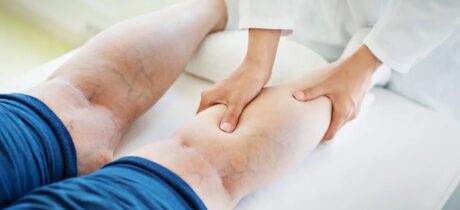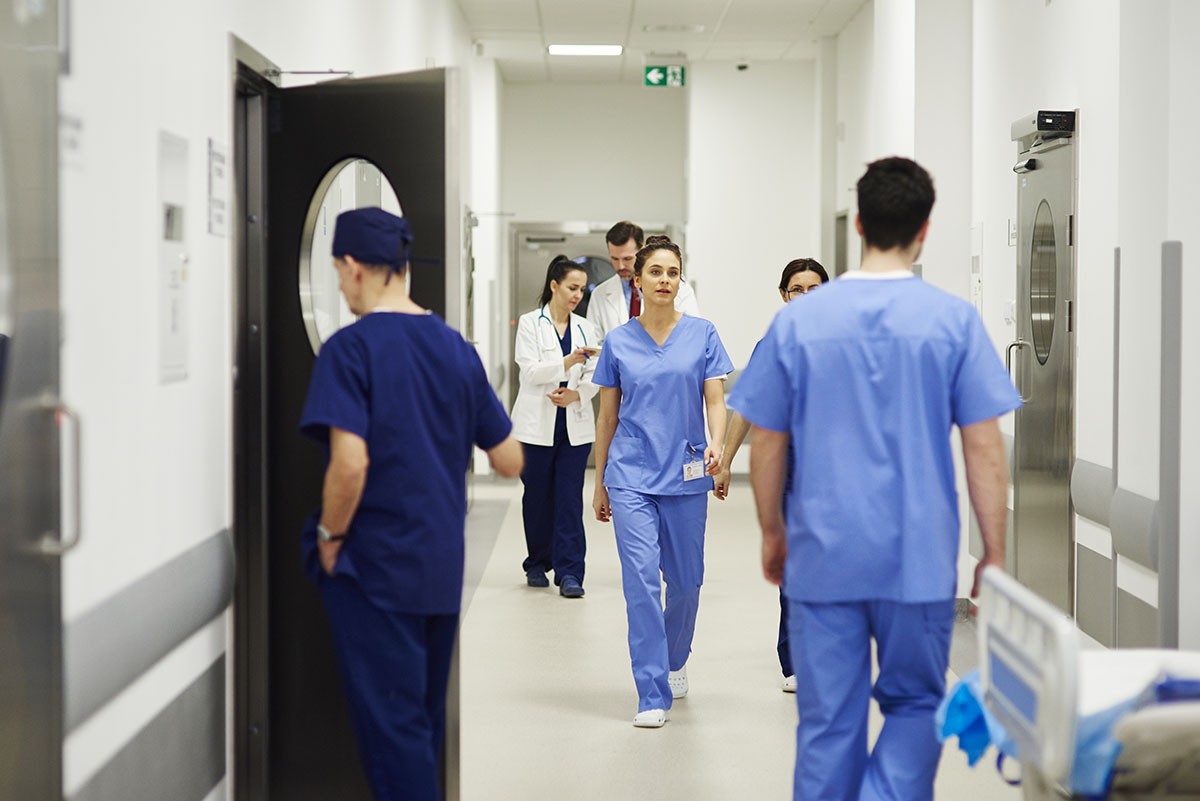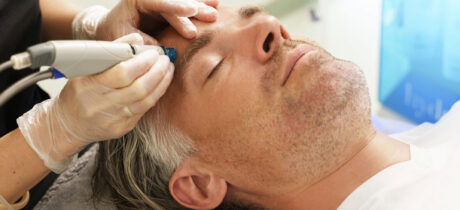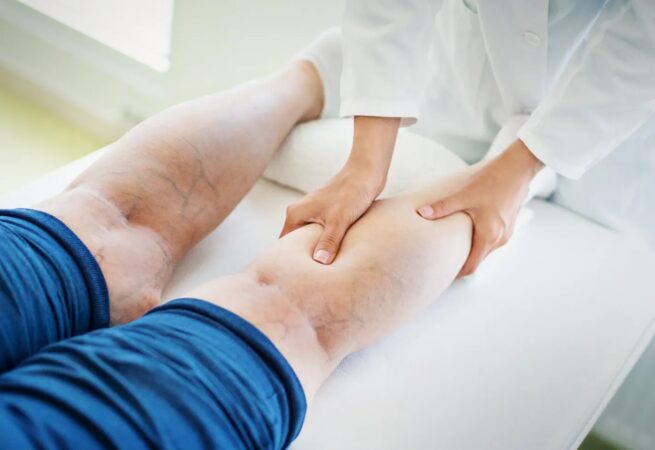

All About The Optavia Food Scale
Are you curious about the ideal Optavia food scale? The hard work has been done for you, and we’ve determined what we think is the ideal OPTAVIA food scale for your kitchen.
It is important to accurately weigh and measure your meals whether you are just beginning the OPTAVIA 5&1 Plan or the OPTAVIA 4&2&1 Plan. For maximum success, you should weigh every dinner or OPTAVIA recipe you prepare, from lean to green.
Some Studies On Optavia
The meal replacements offered by Medifast and Optavia are equivalent in terms of nutrition, claims the parent company of Medifast.
In a 2010 study, the Medifast diet was compared against a self-selected, isocaloric food-based meal plan to see which was more beneficial for weight loss. The outcomes of the Medifast diet at first seemed encouraging.
In comparison to those who followed a food-based diet, individuals who followed the Medifast diet lost significantly more weight and fat mass at 16 weeks.
Participants who used the Medifast diet saw more weight gain throughout the 24-week maintenance phase, but after 40 weeks, there was no statistically significant difference in the amount of weight lost between the groups.
Similar comparisons between the Medifast diet and an isocaloric food-based diet were made in a 2013 study. However, in this 12-month trial, both the intervention and maintenance phases lasted for 26 weeks.
Participants who followed the Medifast diet experienced more weight loss, a smaller waist circumference, and a greater reduction in fat mass after the maintenance period than those who followed the food-based diet.
Because Medifast funded both of these trials, there may be some bias in the findings.
Diet plans that encourage rapid weight loss may have some short-term advantages, but they may not be as effective as those that encourage gradual loss.
In contrast to quick weight loss regimens, progressive weight loss generated more significant decreases in fat mass and body fat percentage while maintaining resting metabolic rate, according to a systematic review and meta-analysis published in 2020.
Sustainability
Optavia is an extremely low-calorie, low-carb diet, thus it could be challenging for some people to adhere to.
The 850–1050 calories per day that the 5&1 Plan normally offers are unsustainable over the long term.
This abrupt decrease in caloric intake may also result in several physiological reactions that can modify metabolism and heighten desires for food.
To help people cope with the physiological and psychological stress of a significant calorie deficit, there is likely a heavy emphasis on coaching, accountability, and community. This is likely in part because following a low-calorie diet like Optavia can be challenging.
When one reaches their optimum weight, they can switch to a slightly higher-calorie diet, which may be simpler to maintain. The diet programme Optavia presents the appearance of choice but can the fact be rather restricted.
Purchasing one of the more than 60 various Optavia Fuelings from their web shop accounts for the majority of your personalization. Therefore, you must choose this food scale for your body improvement.

Some Pregnancy Management Tips that You Should Know
Every woman wants to stay active and healthy throughout her pregnancy. If you are pregnant then you must eat well, get sufficient sleep, do physical activities, and be optimistic. Taking care of your physical and emotional health is really very important for a healthy pregnancy. A mom’s good health is essential for a healthy baby. During pregnancy, being connected with doctors like a gynecologist, pediatrician, etc. is very important to ensure your own and your baby’s good health. At icareheal, we connect you with the best doctors around so that you can get medical aid whenever necessary. We provide you with an all-in-one app for doctors to make your work easier and much smoother.
Tips for Better Pregnancy Management
- Look after your Health and Go for regular check-ups
Schedule an appointment with your doctor as soon as you find out you’re pregnant. Your doctor will start by reviewing your medical history. He or she also will want to know about your symptoms. During this first appointment, urine and blood samples will be taken. Urine tests check for bacteria, high sugar levels (which can be a sign of diabetes), and high protein levels (which can be a sign of preeclampsia, a type of high blood pressure during pregnancy). Blood tests check for blood cell count, blood type, low iron levels (anemia), and infectious diseases (such as syphilis, HIV, and hepatitis).
The doctor also may do other tests on your first visit. These may vary based on your background and risk for problems. Tests can include:
- A pelvic exam to check the size and shape of your uterus (womb)
- A Pap smear to screen for cervical cancer
- An ultrasound to view your baby’s growth and position (An ultrasound uses sound waves to create an image of your baby on a video screen.)
- After your first visit, you will have a prenatal visit every 4 weeks. In months 7 and 8, you will have a visit every 2 weeks. In your last month of pregnancy, the visits will occur weekly until you deliver your baby. At each visit, the doctor will check your weight and blood pressure and test your urine. The doctor will listen to your baby’s heartbeat and measure the height of your uterus after the 20th week. You should always discuss any issues or concerns you have with your doctor.
- How to Manage some Common Side-effects of Pregnancy
Morning sickness: Nausea or vomiting may strike anytime during the day (or night). Try eating frequent, small meals. Avoid foods that are greasy, spicy, or acidic. Some women are more nauseous when their stomach is empty. Keep crackers nearby to prevent an empty stomach. Talk to your doctor if morning sickness causes you to lose weight or lasts past the first 3 months of pregnancy.
Tiredness: Fatigue is common when you’re pregnant. Try to get enough rest or take naps if possible. Talk to your doctor if you have symptoms with fatigue. You may have anemia.
Leg cramps: Being active can help reduce leg cramps. Stretch the calf of your leg by flexing your foot toward your knee. Also stay hydrated by drinking lots of water.
Constipation: Drink plenty of fluids. Eat foods with lots of fiber, such as fruits, vegetables, and bran cereal. Don’t take laxatives without talking to your doctor first. Stool softeners may be safer than laxatives.
Hemorrhoids: Try to avoid becoming constipated. Don’t strain during bowel movements. Clean yourself well after a bowel movement. Wet wipes may feel better than toilet paper. Take warm soaks (sitz baths) if necessary.
Urinating more often: You may need to urinate more often when you are pregnant. Changing hormones can be a factor. Also, as your baby grows, he or she will put pressure on your bladder.
Varicose veins: Avoid clothing that fits tightly around your waist or legs. Rest and put your feet up as much as you can. Avoid sitting or standing still for long periods. Ask your doctor about support or compression hose. These can help prevent or ease varicose veins.
Moodiness: Your hormones are on a roller coaster ride during pregnancy. Your whole life is changing. Don’t be too hard on yourself. Get help right away if you feel sad or think about suicide.
Heartburn: Eat frequent, small meals. Avoid spicy, greasy, or acidic foods. Don’t lie down right after eating. Ask your doctor about taking antacids.
Yeast infections: The amount of discharge from your vagina can increase during pregnancy. Yeast infections, which can cause discharge, are common as well. Talk to your doctor if you see any unusual discharge or if it has an odor.
Bleeding gums: Brush and floss regularly. See your dentist for cleanings. Don’t avoid dental visits because you’re pregnant. Just be sure to tell your dentist you’re pregnant.
Stuffy nose: Changes in the levels of the female hormone estrogen can cause a stuffy nose. You may also have nosebleeds.
Edema(retaining fluid): Rest with your legs up as much as you can. Lie on your left side while sleeping. This position helps blood flow from your legs back to your heart better. Don’t use diuretics (water pills).
Skin changes: Stretch marks appear as red marks on your skin. Lotion with shea butter can help keep your skin moist and reduce itchy, dry skin. Stretch marks can’t be avoided. They do often fade after pregnancy. You may have other skin changes. These can include darkening of the skin on your face or around your nipples. Some women get a dark line below their belly button. Try to stay out of the sun or use sunscreen to help lessen these marks. Most marks will fade after pregnancy.
How to treat Postpartum depression?
The common types of treatment for postpartum depression are:
Therapy: During therapy, you talk to a therapist, psychologist, or social worker to learn strategies to change how depression makes you think, feel, and act.
Medicine: There are different types of medicines for postpartum depression. All of them must be prescribed by your doctor or nurse. The most common type is antidepressants. Antidepressants can help relieve symptoms of depression and some can be taken while you’re breastfeeding. Antidepressants may take several weeks to start working.
Electroconvulsive therapy (ECT): This can be used in extreme cases to treat postpartum depression.
These treatments can be used alone or together. Talk with your doctor or nurse about the benefits and risks of taking medicine to treat depression when you are pregnant or breastfeeding.
Having depression can affect your baby. Getting treatment is important for you and your baby. Taking medicines for depression or going to therapy does not make you a bad mother or a failure. Getting help is a sign of strength.

How to cure constipation with diet?
Everyone’s bowel rhythms are different and can vary greatly. For example, what is meant by constipation? Having difficulty evacuating: passing stools less than three times a week and with a very dry or rigid consistency. It dramatically influences people’s daily life, altering their quality of life. In addition, it is associated with many other pathologies such as diverticulitis, haemorrhoids and colon cancer. Therefore, it is vitally important to combat it with a proper diet. The dietitians-nutritionists of Alimmenta (members of the Association of Dietitians-Nutritionists) propose solutions with this video and this article to improve your health through healthy eating.
Types and causes of constipation
constipation diet is considered normal to go to the bathroom from three times a day (person with rapid intestinal transit) to three times a week (person with slow intestinal transit), as long as the consistency and colour of the stool are correct and there is no difficulty in evacuate.
Constipation is more common in older people, and more women than men suffer from this problem. However, it can occur in anyone (men and women) and at any time in life (children, adolescents, adults and the elderly). Most of the time, its leading cause is an incorrect diet and lack of regular physical exercise.
Constipation can be occasional due to stressful situations, changes in schedules and routines, travel, fasting, pregnancy, menopause or become a chronic disease that usually begins in childhood or adolescence. In this case, you should always be attentive to food to combat it and evacuate regularly.
Beware of laxatives for constipation.
Most of the time, laxatives are used to improve the discomfort caused by this problem, but you have to try to avoid it. Why? Most laxatives irritate the intestinal mucosa (the wall of the intestine inside). This destroys the flora (a set of intestinal villi and beneficial bacteria that protect them) and does not favour the re-establishment of the natural movements of the intestine. However, its consumption is harmful in the long term since it causes total dependence. That is, the intestine becomes “lazy”, making evacuating difficult without its supply. This situation can be reversed with good dietary guidelines and new habits, and the intestine regains its independence from laxatives.
What to take for constipation
If you want to take something to relieve occasional constipation, it is best to use glycerin suppositories. But to improve chronic constipation, persistent action will be necessary, for example, with fibre supplements, which are very helpful and do not have the adverse effects of laxatives.
It is crucial to keep in mind that whenever fibre consumption is increased, whether through diet or a supplement, it is also necessary to improve water and fluid intake. For fibre to increase faecal volume and weight, it needs to absorb a lot of water. Otherwise, it could produce an unwanted reverse effect.
End constipation
The healthiest thing that works best is facing constipation from a more global point of view. This is where the person’s lifestyle becomes very important.
Physical activity is essential, being the most effective to walking several times a day.
The nutritional approach is also essential to combat constipation. Certain ingredients, foods for constipation, and recipes are crucial to achieving it. Which are
Foods for constipation
Relieving constipation with natural remedies is possible with changes in diet.
In the first place, it is necessary to increase the volume and weight of the stool through the consumption of:
Fibre-rich foods:
- Reach the recommendations for consuming fruit and vegetables per day (3 servings of fruit and two vegetables). If eaten with skin increases its amount of fibre.
- Consume whole grains that are whole grains. They can be in the form of bread, pasta or rice.
Liquids:
- Agua
- infusions
- fruit juices
- broths
Secondly, fat intake must also be adequate. For example, it is widespread to find people who suffer from constipation when they start a weight loss diet due to the restriction of fats (especially oil) they carry out. Olive oil performs a function of intestinal lubricant, favouring transit. Taking a tablespoon of virgin olive oil on an empty stomach is a trick that works very well.
Thirdly, it is necessary to increase peristalsis (the natural movements of the intestine). It’s a great help:
- Drink a glass of warm water or hot drink on an empty stomach.
- Do abdominal self-massages following the shape of the intestine. See the drawing: ascending colon, transverse colon, descending colon.
Fourth, eat foods that enhance the secretion of bile. The liver secretes bile to help carry out digestion in the intestine, which has an excellent laxative effect. Foods that help achieve this are:
- The fats. Between 2 and 3 tablespoons of olive oil per day (including those in culinary preparations) are recommended for its lubricating action at the intestinal level. However, other fats, such as saturated and especially hydrogenated, are not recommended due to their relationship with poor digestion and diseases such as cardiovascular, diabetes, etc.
- Artichokes, escarole, endive and aubergine.
- The orange (especially in juice).
Fifth, a healthy and robust intestinal flora should be promoted. The intestinal flora facilitates a correct absorption of nutrients in the intestine and normalises intestinal transit. The foods that strengthen it are probiotics. Foods containing live milk bacteria beneficial to the body, such as yoghurt and some fresh cheeses, are considered probiotics.
It is essential to be careful not to consume excessively :
- Foods with an irritating effect on the intestine that produce an unwanted laxative effect: coffee, tobacco.
- Astringent, constipating foods: rice, tea.
Foods to avoid in case of constipation
Above all, the driest cheeses and non-integral farinaceous foods such as white rice, pasta or white bread should be avoided. Quince and tea should also be avoided due to astringent tannins. In general, the use of these foods has to be rather occasional (maximum 2-3 times per week)
You can replace the banana with the recommended fruits and consume the apple with the skin.
Avoid alcohol, which dehydrates the mucous membranes, and foods with too much fat or fried foods that can cause heavy digestion.
Practising physical activity is very positive in this sense since it helps to strengthen the muscles of the abdominal wall that are involved in the expulsion of faeces.
The weekly menu for constipation
Here is an example of a weekly menu that will help combat constipation. We recommend you go to a dietitian-nutritionist to adapt it to your particular situation.

Brain booster to protect your brain
Many of the ingredients used in brain health supplements have been linked to improved mental well-being. However, Smith claims that research on diet and nutrition, rather than supplements, provides the bulk of the evidence.
You may, however, be wondering whether there is any truth to the claim that the common ingredients in these supplements really promote good brain health. According to the data, this is the case.
In many cases, nerve injury may result in unpleasant and painful emotions; this is why the term “neuropathy” is used so often. Neuropathy may be brought on by a variety of factors, but diabetes is the leading cause. Additionally, neuropathy may be caused by chemotherapy and its negative effects. Healblend‘s offerings are the best options for treating such conditions.
The Most Effective Conventional Treatments Currently Available
In some cases, conventional treatments for neuropathy are sufficient. The Healblend supplement, on the other hand, has recently been the subject of research. The supplements offered by Healblend have less unfavourable effects than the alternatives to therapy that the company also offers. These items may also improve your health and happiness in other ways.
Consult your primary care physician before beginning any new treatment or supplement. These supplements may be used in conjunction with other therapies, such as pain medication and other adaptive measures, to help alleviate your condition’s symptoms, but you should be careful while doing so. Stay at Healblend since it offers the best services in this area.
The supplement L-Glutamic Acid has been demonstrated to increase people’s focus and awareness, making it a useful tool for those who struggle with these mental processes. These substances, in addition to the others included in Neuro Plus from Healblend, allow the supplement to provide the aforementioned advantages.
Elevate one’s disposition and vigour
Neuro Plus, a dietary supplement marketed by Healblend, may improve your mood and reduce your stress levels by helping you cope with stress in a more natural manner. Your body’s natural energy regeneration is aided by your brain’s enhanced functionality, attitude, and overall view on life. Get your hands on some Neuro Plus right now second and feed your brain the best nutrition available.
Budget-friendly and easily absorbed by the body capsules
Healblend‘s Neuro Plus is formulated with the herbs and nutrients proved to be most beneficial in scientific studies to boost cognitive performance. For even higher bioavailability, we used fast-dissolving capsules. This ensures your body gets the supplement’s full benefit from each and every dose. We are certain that you will see a significant improvement in your memory and mental capacities if you use these supplements as prescribed. We take pride in being able to assure you of the superior quality of our wares.
Some tried-and-true ingredients are:
Green tea extract and a powerful custom mix are just two examples of the all-natural ingredients derived from Healblend that are used to boost energy levels, mood, and brainpower.
Our products have been certified as natural, GMO-free, and safe to use thanks to our adherence to effective and safe Good Manufacturing Practices (GMP). Using these tablets from Healblend will enhance the quality of your life in a short amount of time and for a long period of time. As instructed by your healthcare provider, take two capsules once day, ideally twenty to thirty minutes before eating.

7 Reasons Why Security is So Important For All Hospitals
Hospitals are one of the most vulnerable places in the world. With so many people, they have to deal with security issues on a daily basis.
There are various reasons why hospitals need to be more secure, but the following are some of the reasons that I found most compelling:
1) Hospitals are often very busy and understaffed. They need people to be able to get in and out quickly without having to wait for someone else to let them in or out.
2) Hospitals often have patients who have very high-risk conditions and they need their privacy protected from prying eyes, especially those of family members who may not understand what is happening with their loved ones.
3) Hospitals serve as a place where people come for treatment and recovery from serious illnesses and injuries that can be life-threatening if left untreated.
4) Hospitals serve as a place where patients receive treatment for diseases like cancer which can spread if not contained properly
Why Security Is So Important For Hospitals
Hospitals are the most vulnerable to cyberattacks due to the sensitive nature of their operations. According to a study conducted by IBM, one in four hospitals and nearly half of healthcare organizations have been targeted by ransomware.
7 Benefits of Implementing a Comprehensive Security Program at Your Hospital
With the rising number of cyber attacks, hospitals need a comprehensive security program. This will help them to protect their patients, staff, and assets. Buy red dot sights online from Palmetto State Armory to enhance security of patients, staff, and assets.
Some of the benefits of implementing a comprehensive security program are:
– It allows you to protect your patients and staff from cyber threats such as data breaches, ransomware attacks, and more
– It helps you to reduce the risk of identity theft
– It helps you to reduce the risk of employee theft
– A comprehensive security program can help you to improve your overall cybersecurity posture
6 Ways to Improve the Quality of Your Hospital’s Security
What are the ways to improve the quality of your hospital’s security?
There are many ways to improve the quality of your hospital’s security, but these are some that work best:
- Implement an external auditing system
- Use a video surveillance system for surveillance purposes
- Implement a key management system for access control
- Implement a digital identity management platform for patient records
- Use biometric identification systems for staff and patients
- Apply data analytics to identify patterns in patient behavior and use it as an opportunity to increase security at your hospital
3 Ways You Can Help Protect Healthcare Professionals and Patients From Cyber Attacks
Healthcare professionals and patients are the most vulnerable to cyber attacks. Here are three ways you can help protect yourself, your organization, and your patients from cyber attacks.
- Keep up to date with latest cybersecurity news
- Educate yourself on how to protect yourself, your organization, and your patients from cyberattacks
- Use a VPN service
4 Tips for Fighting Healthcare Data Breaches at Workplace or Home Environment
With the increasing number of data breaches, it is important to know how to prevent them. The 4 tips for fighting healthcare data breaches at workplace or home environment are:
- Use strong passwords
- Ensure that your device has a strong password and encryption software
- Secure your network with antivirus software
- Make sure that you have a backup plan in case of any data breach
5 Tips for Reducing Healthcare Data Breaches in Your Business or Home Environment
There are many ways to save your business or home from data breaches. These include:
– Implementing strong password policies
– Installing antivirus software
– Maintaining a backup plan
– Using encryption and digital certificates
– Encrypting sensitive data on the network.












